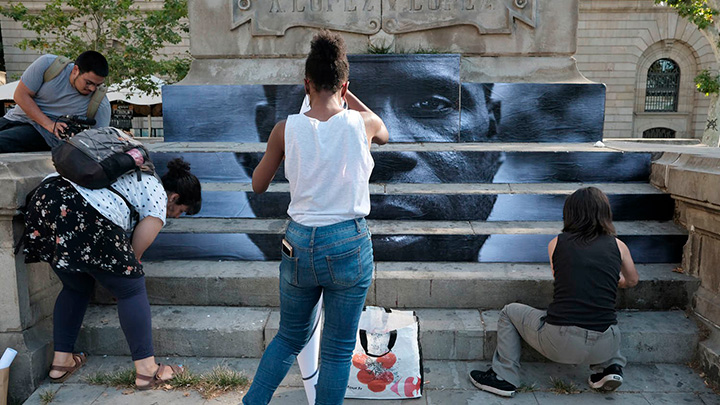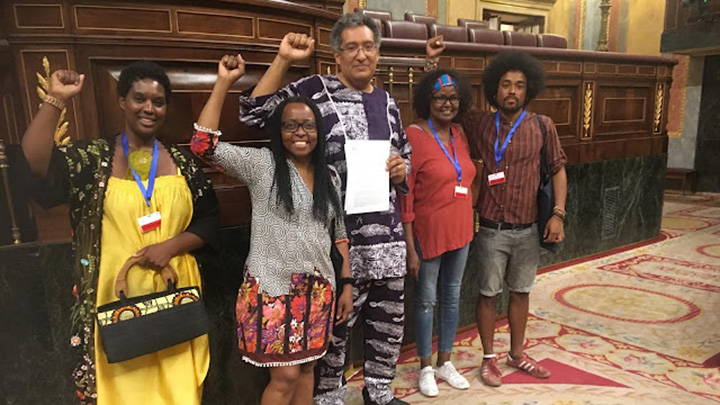The European Observatory on Memories of the UB Solidarity Foundation identify colonial and racial reparation actions in Spain


The adaptation of the project to the European context materialised in 2022, with the publication of the first report. Now, EUROM has developed it in a more complete and detailed way. The study presents a global overview of all colonial or racial reparation actions that have been promoted in Spain from the 20th century to the present, regardless of the outcome of their completion. They are divided into six categories:
-
Legislative initiatives by the Congress of Deputies or the autonomous parliaments and political declarations on colonialism and slavery in Spain: such as the political discussions that have taken place in Spain regarding Sahrawi nationality.
-
Grassroots political demonstrations and statements: Anti-racist demonstrations by the Black Lives Matter movement, among others, are documented.
-
Racial redress initiatives: for example, legislative actions promoted to prevent hate crimes.
-
Heritage restitution initiatives: an example of an action classified in this category is the repatriation of the Negre de Banyoles.
-
Resignification of monuments, street names or vandalisation: for example, the renaming of “Plaça d’Antonio Lopez square” to "Plaça d’Idrissa Diallo" in 2022.
-
Creation of permanent or ephemeral memory spaces: this category focuses on temporary exhibitions and unofficial ephemeral memorials. Unlike countries such as the United Kingdom or France, museums dedicated to slavery and colonialism have not proliferated in Spain.
Particularities of the study
While reparations claims in the North American context date back to the American Civil War and mainly address grievances related to slavery and the African-American population, in Spain, movements critical of the colonial past and its legacies are mainly led by diaspora communities, linked to the trajectories of anti-racist movements.
Through the narrative of a common experience, these communities manifest themselves as holders of reparation rights, and understand that the colonial violence of the past persists in the present through mechanisms of racial discrimination and impoverishment of the global south. While not all of their initiatives and demands can be directly considered forms of reparations, the EUROM study interprets them as part of the same phenomenon that contributes to creating new, more democratic and inclusive memories, encourages compensation and recognition initiatives, and advocates for specific legislation in this area.
Multimedia gallery

Congresswoman Rita Bosaho accompanied by representatives of the African and Afro-descendant community at the presentation of the PNL for the recognition of the Afro community in Spain in July 2018.
Source: Africanidad.com.
